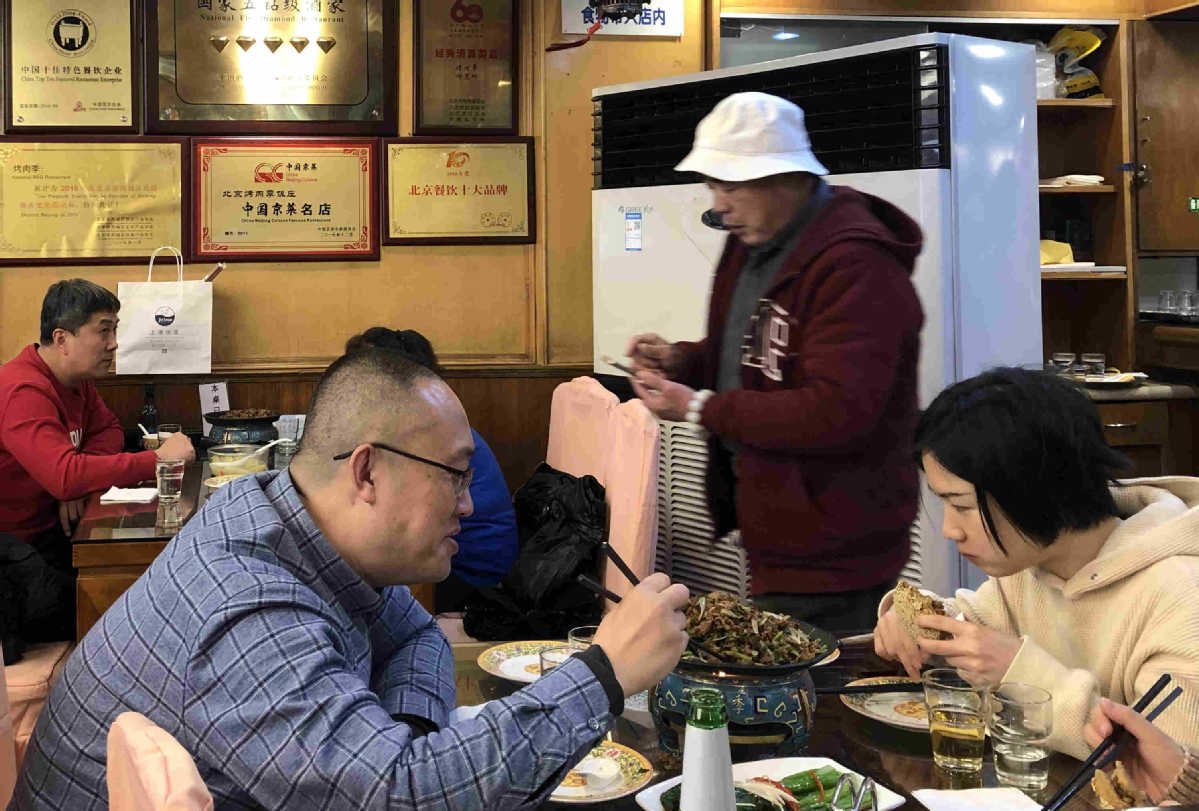Time-honored eateries warm Beijing diners


Scenic location
Beijing has many other well-established restaurants that have witnessed changing times while retaining their locations and reputations for flavor.
Kaorouji, which was founded in 1848 and is located in Qianhaidongyan near the Shichahai scenic spot, is one them.
The name "kaorou" means roast meat, while "ji" refers to the surname of the restaurant's founder, Ji Decai.
In 1848, Ji had just one stand selling roast mutton, but he attracted a large number of customers. Ji Gechen, the grandson of Ji Decai, bought premises near the stand, which have housed the restaurant since 1927.
The capital's residents traditionally eat mutton in winter, with the meat forming an ingredient of Beijing-style hotpot. The sliced mutton is placed in a pot of boiling soup and eaten after being dipped in sesame paste.
The general manager of Kaorouji, Lu Jianwei, a Beiinger who has worked for the business since 2008, said roast mutton is also popular during winter.
"The restaurant has never changed its location or its flavors. This is what we believe in," he said. "Many people eat here while enjoying views of Shichahai outside, especially in winter when it snows."
The restaurant serves roast mutton in up to eight flavors. In special dining rooms, customers can eat the dish in the traditional manner-standing up and washing it down with strong liquor.
Lu said: "Our reputation has attracted many visitors over the years, including celebrities such as the writers Guo Moruo and Lao She, along with Peking Opera master Mei Lanfang.
"However, the majority of our customers are locals, because they like the atmosphere and the unchanged flavors."
Lu gets to know many of his customers well-one of them being a 90-year-old man who came to Beijing in 1949.
Until three years ago, this elderly customer visited the restaurant five or six days a week for lunch, only ordering one dish of tofu and two Chinese pancakes. He ate alone.
Lu asked the customer why he always had tofu, and he replied that it was a favorite of his and his late wife. The couple held their wedding feast at Kaorouji in the 1950s.
After his wife died, the man chose to eat alone at the restaurant to relive some of the couple's memories, even though he lives some distance away on the North Fifth Ring Road.
Lu added that customers become emotionally attached to a restaurant with rich traditions and history, as they feel connected to it in some way.






































